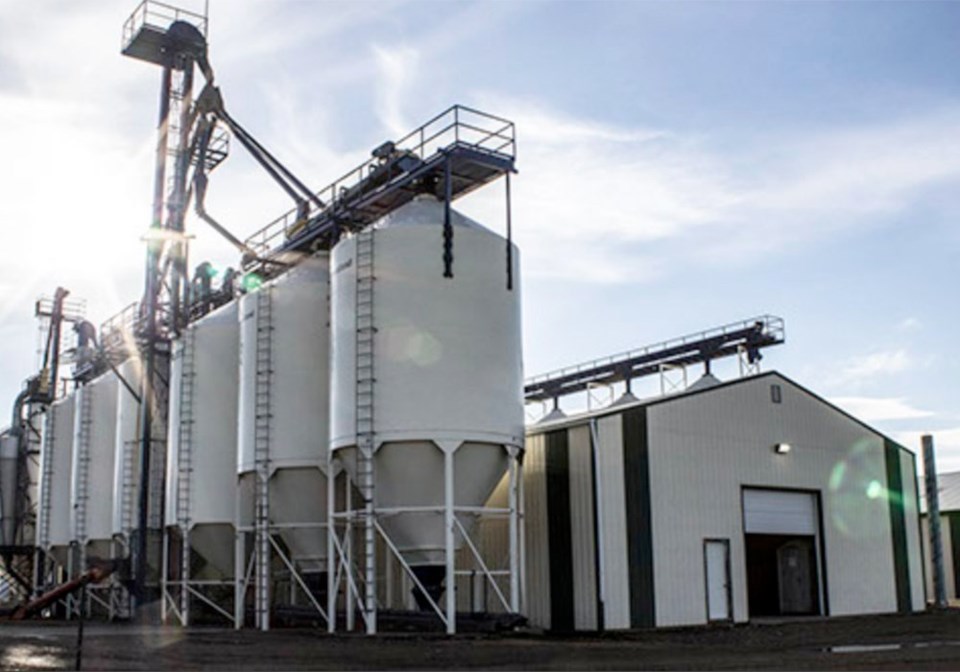“At this time it appears that the security held by the grain company will be insufficient to provide all eligible claimants with 100 percent compensation,” said Canadian Grain Commission spokesperson Remi Gosselin.
The company was placed in receivership on April 26.
Farmers have been waiting a long time to find out how much they will be compensated for the grain they delivered to the plant and it appears there will be further delays as the CGC awaits a court decision on matters pertaining to the receivership.
“Obviously, because of this unusual set of circumstances the CGC thanks all producer claimants for their patience,” said Gosselin.
“The reason why we are engaged in this process is that the CGC’s ultimate goal is to maximize compensation for all producers.”
An initial audit conducted by the CGC shows farmers are owed $5.87 million for grain delivered to the company.
The company had a $4 million payables insurance policy with Intact Insurance, so there is a sizable shortfall in the security it had in place to protect growers.
But Gosselin said there are two other possible streams of revenue.
The first is the grain inventory the company had on hand at the time it entered into receivership. Some farmers may be eligible for compensation directly from that inventory once it is liquidated. The court will determine who is eligible and how much they receive.
Also, some growers may have priority status like other secured creditors and may be eligible for funds under the Bankruptcy and Insolvency Act. Again, the court will determine who and how much.
Gosselin said the next court date is scheduled for early December.
As soon as those two issues are sorted out, the CGC will be able to distribute the security money to eligible farmers. Gosselin said even with those two possible additional streams of revenue farmers are still unlikely to receive full compensation.
Darell Hapke, a farmer from Vanguard, Sask., is not happy with the long delay.
He is owed $41,000 for red lentils he delivered to W.A. Grain’s Vanguard plant.
“It’s a tough fall here because we don’t have much in the bin and all our (input) prices are going up,” he said.
“I could sure use that 41,000 bucks that he owes me.”
Hapke is referring to W.A. Grain owner Chris Chivilo.
He took umbrage with recent published remarks made by Alberta Pulse Growers director Allison Ammeter who was commenting on Chivilo’s involvement in a new pea fractionation plant venture in Bowden, Alta.
She said she wasn’t worried about Chivilo working as an employee at the pulse processing plant that he helped get off the ground.
“It doesn’t give me any pause because I know Chris and I know how hard he has worked for the industry,” said Ammeter in a Western Producer article about the facility.
She said the demise of W.A. Grain was not an issue of malfeasance but rather outside factors.
“Chris, to his credit, did his very best to make sure that nobody ended up getting shafted as things fell apart,” said Ammeter.
Those comments rankled Hapke. He has a neighbour who is owed $180,000 by W.A. Grain, a friend who is out $51,000 and a nephew that is short $55,000.
“This stuff this woman said is just completely wrong,” he said.
Hapke received a call from the manager of W.A. Grain’s Vanguard facility on April 28 saying the plant was in desperate need of red lentils.
He hauled a load to the plant the following day. A few days later the plant closed its doors.
“Tell me this guy is playing fairly,” he said.
“It’s a far cry from what this lady says.”
Hapke has been told by the CGC that farmers will get their cheques in 2022. Meanwhile, he is having to pay $13 per litre for glyphosate and 30 percent more for fertilizer than he did the previous year.
“I need that money right now,” he said.




